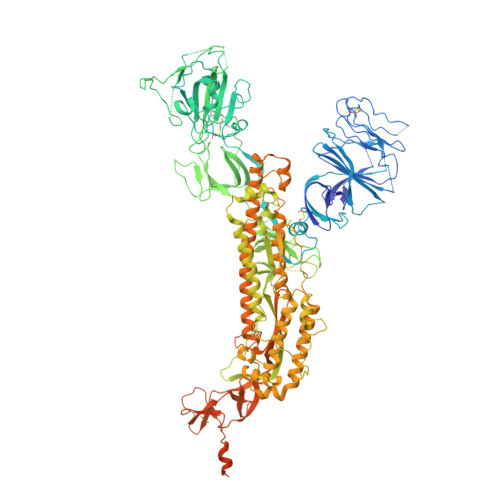BNT162b vaccines protect rhesus macaques from SARS-CoV-2.
Vogel, A.B., Kanevsky, I., Che, Y., Swanson, K.A., Muik, A., Vormehr, M., Kranz, L.M., Walzer, K.C., Hein, S., Guler, A., Loschko, J., Maddur, M.S., Ota-Setlik, A., Tompkins, K., Cole, J., Lui, B.G., Ziegenhals, T., Plaschke, A., Eisel, D., Dany, S.C., Fesser, S., Erbar, S., Bates, F., Schneider, D., Jesionek, B., Sanger, B., Wallisch, A.K., Feuchter, Y., Junginger, H., Krumm, S.A., Heinen, A.P., Adams-Quack, P., Schlereth, J., Schille, S., Kroner, C., de la Caridad Guimil Garcia, R., Hiller, T., Fischer, L., Sellers, R.S., Choudhary, S., Gonzalez, O., Vascotto, F., Gutman, M.R., Fontenot, J.A., Hall-Ursone, S., Brasky, K., Griffor, M.C., Han, S., Su, A.A.H., Lees, J.A., Nedoma, N.L., Mashalidis, E.H., Sahasrabudhe, P.V., Tan, C.Y., Pavliakova, D., Singh, G., Fontes-Garfias, C., Pride, M., Scully, I.L., Ciolino, T., Obregon, J., Gazi, M., Carrion Jr., R., Alfson, K.J., Kalina, W.V., Kaushal, D., Shi, P.Y., Klamp, T., Rosenbaum, C., Kuhn, A.N., Tureci, O., Dormitzer, P.R., Jansen, K.U., Sahin, U.(2021) Nature 592: 283-289
- PubMed: 33524990
- DOI: https://doi.org/10.1038/s41586-021-03275-y
- Primary Citation of Related Structures:
7L7F, 7L7K - PubMed Abstract:
A safe and effective vaccine against COVID-19 is urgently needed in quantities that are sufficient to immunize large populations. Here we report the preclinical development of two vaccine candidates (BNT162b1 and BNT162b2) that contain nucleoside-modified messenger RNA that encodes immunogens derived from the spike glycoprotein (S) of SARS-CoV-2, formulated in lipid nanoparticles. BNT162b1 encodes a soluble, secreted trimerized receptor-binding domain (known as the RBD-foldon). BNT162b2 encodes the full-length transmembrane S glycoprotein, locked in its prefusion conformation by the substitution of two residues with proline (S(K986P/V987P); hereafter, S(P2) (also known as P2 S)). The flexibly tethered RBDs of the RBD-foldon bind to human ACE2 with high avidity. Approximately 20% of the S(P2) trimers are in the two-RBD 'down', one-RBD 'up' state. In mice, one intramuscular dose of either candidate vaccine elicits a dose-dependent antibody response with high virus-entry inhibition titres and strong T-helper-1 CD4 + and IFNγ + CD8 + T cell responses. Prime-boost vaccination of rhesus macaques (Macaca mulatta) with the BNT162b candidates elicits SARS-CoV-2-neutralizing geometric mean titres that are 8.2-18.2× that of a panel of SARS-CoV-2-convalescent human sera. The vaccine candidates protect macaques against challenge with SARS-CoV-2; in particular, BNT162b2 protects the lower respiratory tract against the presence of viral RNA and shows no evidence of disease enhancement. Both candidates are being evaluated in phase I trials in Germany and the USA 1-3 , and BNT162b2 is being evaluated in an ongoing global phase II/III trial (NCT04380701 and NCT04368728).
Organizational Affiliation:
BioNTech, Mainz, Germany.














